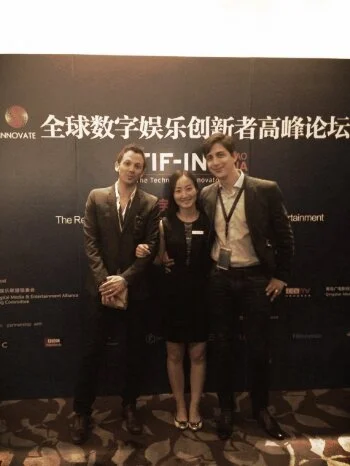Welcome to the Smallest Multinational on the Planet
We often jokingly refer to ourselves as the "Smallest Multinational on the Planet" but maintaining projects in 20 countries is all about process, understanding, enthusiasm and most of all patience.
INDE’s immersive interactive technologies have been deployed across all continents, which is a remarkable statement to be able to make given the company’s (relatively) short lifespan. When recruiting recently it was great to be able to respond to an interviewee’s question – about what are the challenges a new employee might face in their new role - by using the example of the installation we’d recently completed in Ulaanbataar, Mongolia. I don't think any of the team would have envisaged that we’d be working there, but we delivered another great project – on time, and on budget to a happy client. In fact Mongolia was the latest in a long line of installations in the four corners of the planet that have tested our resolve to ensure we deliver excellence every time. From live control motion capture in a Saudi Arabian desert in 24 hours to augmented reality systems installed in central China in 6, we’ve achieved the unachievable through a mix of commitment, knowledge, skill and a deep love of what we do.
Texas, USA: Getting right shot with friends from National Geographic
The challenges of building and maintaining a truly international business are considerable, but the nature of our global client base dictates that this is something that we have to be in order to maintain our competitive edge. This dictates that we need to be aware not only of what people’s expectations are of emerging technologies such as those that we work with, but also what local business culture suggests is the appropriate way for us to negotiate and then implement our project.
When you’re dealing with people from another culture, you may find that their business practices, communication, and management styles are different from those to which you are accustomed. People often accuse American business of being insular yet people rarely ask why. The reason is primarily due to the fact that, as the largest economy in the world, their internal market has always been so substantial to mean that they often needn’t deal with those outside national borders. Our solution has been to recruit an American to manage the territory, ensure that we have local resource to ensure we can deliver using local staff, and for senior staff to spend time travelling to build key relationships. Our partners around the world offer us insight, knowledge and often some very interesting interpretations of what we think is “right”.
Understanding the culture of the people with whom you are dealing is important to successful business interactions and to accomplishing business objectives. For example, you’ll need to understand:
• How people communicate;
• How culture impacts how people view time and deadlines;
• How they are likely to ask questions or highlight problems;
• How people respond to management and authority;
• How people perceive verbal and physical communications; and
• How people make decisions.
To conduct business with people from other cultures, you must put aside preconceived notions and strive to learn about the culture of your counterpart. It’s just a bit too easy (and lazy) to apply national stereotypes.
QingDao, China: UK and Chinese Government Representatives pose with our CEO and Creative Director
Often the greatest challenge is learning not to apply your own value system when judging people from other cultures. It is important to remember that there are no right or wrong ways to deal with other people—just different ways. Concepts like time and ethics are viewed differently from place to place, and the smart business professional will seek to understand the rationale underlying another culture’s concepts.
Port of Spain, Trinidad & Tobago: the real Shaun takes a breather from LiveAvatar S.E.A.N the alien during rehearsals
For younger and smaller companies, there’s no room for errors or delays—both of which may result from cultural misunderstandings and miscommunications. These miscues can and often do impact the bottom line. We’ve been fortunate enough to be able to recruit people with sufficient intellectual “firepower”, expertise and flexibility to accommodate the requirements of our customers. Whilst we have a British heart, we also have strong Hungarian, Italian and American ‘genes’, as well as experience (gained by osmosis, we like to think) from our business partners across the world. When we add the fact that we operate in markets where rapid technological change is normal rather than unusual, this creates an environment where flexibility is really the only way to survive – and thrive.
Isle of Wight, UK: Calibrating AR dinosaurs for the natural environment when a storm hits




